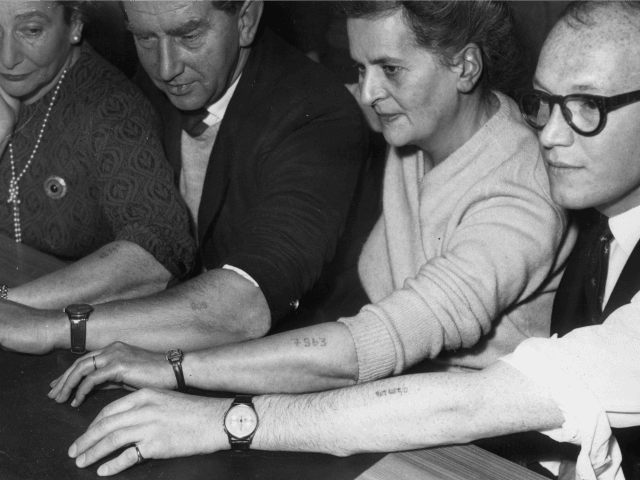A recently discovered inventory of tape recordings contains previously unheard songs sung by Jewish victims of the Holocaust.
A spool of tape found in a mislabeled canister contains songs in Yiddish and German that Nazi officers forced prisoners to sing on their way to labor camps during World War II.
The spool of tape is part of a larger project by Dr. David Boder, who interviewed 130 Jewish survivors at the end of the war, seeking to document the horrors they went through.
After the war ended, Boder interviewed displaced survivors in camps in Germany, Italy, France and Switzerland, according to a report in the British newspaper The Daily Mail.
In his writings, Boder referenced a recording of Jewish songs made in the camp of Henonville in France, but the recording was never heard – until now.
Researchers found the tapes in a canister incorrectly labeled “Heroville Songs” in the archives at the University of Akron’s Drs. Nicholas and Dorothy Cummings Center for the History of Psychology, where much of Boder’s work has been archived.
Researcher Jon Enders was rummaging through three boxes in the archives when he came upon the spool that had been entered into the system as “Heroville Songs.” He was “blown away,” he wrote in a blog post.
Dr. David Baker, the Margaret Clark Moran Executive Director of the Cummings Center, said of the find that “it is one of the most important discoveries from our collections in our 50-year history.”
“The songs were recorded at a refugee camp in Henonville, France. The Nazis made the prisoners sing some of these songs as they ran to their forced labor sites and back each day,” Baker said.
“That we could give the world the melody to a song sung by those sentenced to their death through forced labor during one of the most unspeakable horrors of the 20th century is remarkable,” he added.
After the spool was found, it was necessary to find the right equipment to play it, since the songs were recorded on steel wire using a now-obsolete technology.
None of the wire recorders in the Cummings Center’s collection were compatible, so researchers had to wait a year before the right model was spotted on eBay.
Researchers spent some time tweaking the device and replaced many parts of the recorder. The machine is now mostly built from new parts and can play the spool more reliably and accurately, according to the report in the Daily Mail.
The Cummings Center shared the discovery with the United States Holocaust Memorial Museum in Washington, DC, where staff has helped to translate the work; the museum now has its own digitized copy.
“These songs, in the voices of those subjected to unspeakable cruelty, are a reminder of the power of memory, the value of history, and the indomitable human spirit,” Baker says.

COMMENTS
Please let us know if you're having issues with commenting.